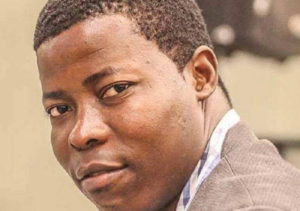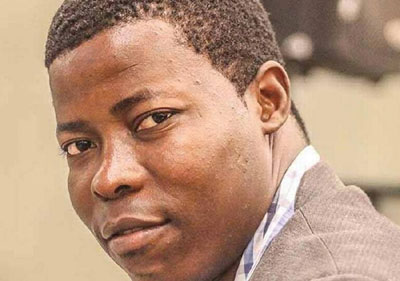
A journalist is missing in Haiti. His wife wants to know: Where is the outcry?
By Jacqueline Charles
The last time Fleurette Guerrier spoke to her husband, Vladjimir Legagneur, the Haitian photojournalist told her he was busy but fine.
Because Legagneur was working on an independent freelance project in Grand Ravine, a gang-ridden Port-au-Prince neighborhood that had been the scene of a deadly police raidfour months earlier, the couple agreed to check in on the phone two hours later.
That was about noon on March 14. Legagneur, 30, hasn’t been heard from since.
Guerrier tried to call at the appointed time. “The phone rang without any response until it just stopped ringing,” she said. She filed a missing person’s report with Haiti’s investigative police on March 16 and said she never heard back.
“I want answers,” said Guerrier, 31. “There is a disappearance that has taken place in the country, and they should conduct an investigation and provide answers about that disappearance.”
Haiti-based journalists plan to take to the streets at 10 a.m. Wednesday in a march of solidarity, demanding a serious investigation and denouncing the passivity of government officials in the disappearance.
“Right now, there is no information to say if he’s alive or if he’s dead, and if he is dead, then under what circumstances did he die?” asked Diego Charles, 30, a journalist with Vision 2000 radio station who is helping the photojournalist organizations Kolektif 2 Dimansy-on (K2D) and l’Union des Journalistes Photographes Haitiens (UJPH) organize the march. “No area of the country should be a no-go zone.”
But Grand Ravine may be just that — even for the Haiti National Police. On Nov. 13, hundreds of HNP officers, sup-ported by the United Nations Mission for Justice Support in Haiti, raided the neighborhood in an anti-gang operation. Hours later, two police officers were dead as well as civilians.
The U.N. mission, in a statement issued days later, “strongly” condemned the violence and called for a judiciary inquiry — a call it reiterated last month.
Frantz Lerebours, an HNP spokesman, said police do not yet have any information on Legagneur’s whereabouts.
He added that a report that an unidentified corpse had been found in Grand Ravine is untrue.
Normil Rameau, the head of the Central Bureau of the Judicial Police (DPCJ), did not respond to questions from the Miami Herald.
Last week, Reporters Without Borders urged Haitian authorities to keep investigating the disappearance of Legagneur, who used to work for the newspaper Le Matin, the online news agency Loop Haïti and other Haitian media outlets. He also worked for nongovern-mental organizations.
“It is extremely worrying that the police have found no trace of him in the 10 days since he went missing,” said Emmanuel Colombié, the head of the Re-porters Without Borders Latin America bureau. Ranking Haiti 53rd out of 180 countries in its World Press Freedom Index, Reporters Without Borders said despite changes in Haiti media law, journalists in Haiti continue to be victims of intimidation or physical violence.
Wednesday, the Committee to Project Journalists urged Haitian authorities to “do everything possible to locate freelance photojournalist Vladjimir Legagneur and conduct a full and transparent investigation into his disappearance.”
A number of human rights organizations have echoed the call for action in Haiti, where April 3 will mark 18 years since one of the country’s most famous journalists and political commentators, Jean Léopold Dominique, was gunned down in the courtyard of his own radio station, Haiti Inter. His murder remains unsolved.
Michel Joseph, a Radio Caraibes journalist who first reported Legagneur’s disappearance on his Facebook page, said the incident impacts all journalists in Haiti and makes reporters question their safety when pursuing controversial stories and stories in certain communities.
“It’s shocking because it can happen to me,” said Joseph, who often crossed paths with Legagneur on stories and initially held off posting the news that he was missing because the family thought it might have been a kidnapping.
“I am thinking back to when I last went into Grand Ravine and thinking about the risks I took. What’s happened is a real threat to all of us. Do we pursue some stories and risk people killing us because they think we are a traitor?” asked Joseph, who reports on social issues that often take him into some of the country’s poorest and most violent neighborhoods.
Like Charles, Joseph finds the lack of outcry from Haitian authorities over the disappearance worrisome.
“It’s as if you’ve been dropped off in a desert to fend for yourself, and that anyone can kill a journalist and nothing is said,” Joseph added.

